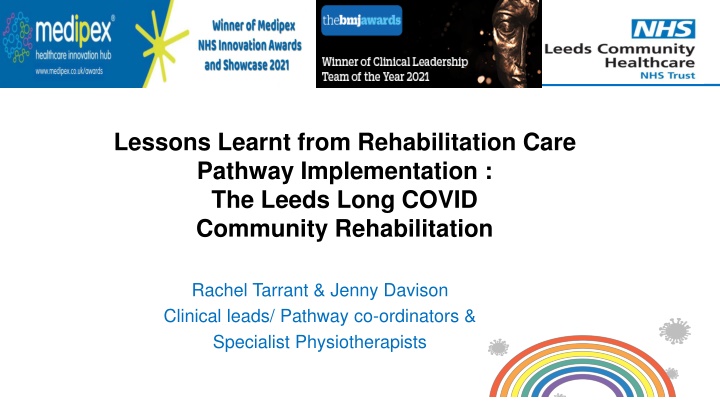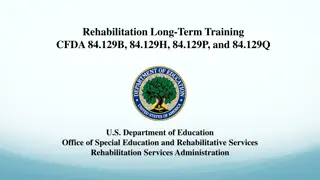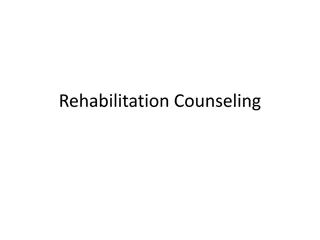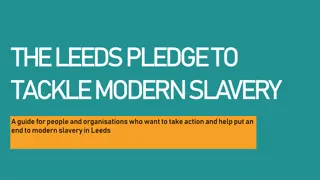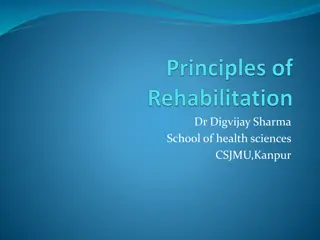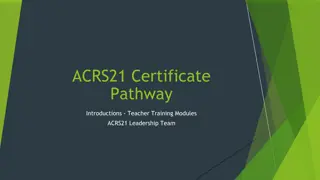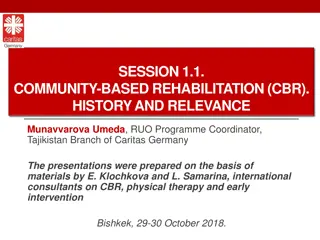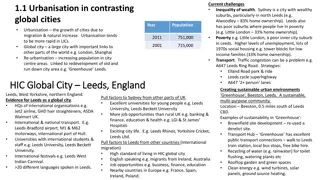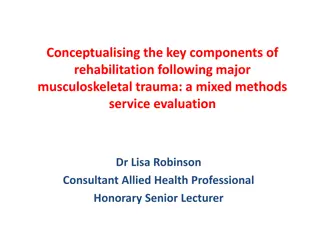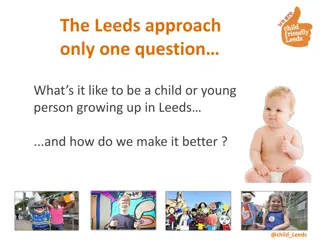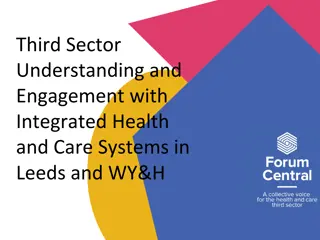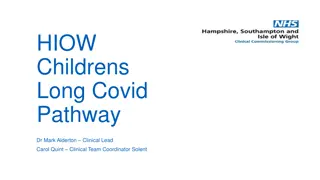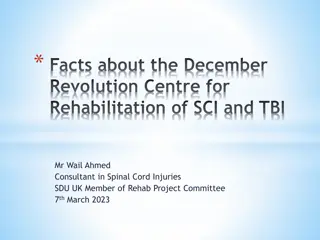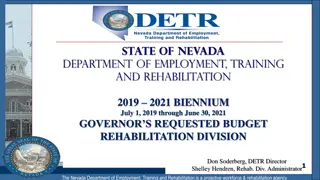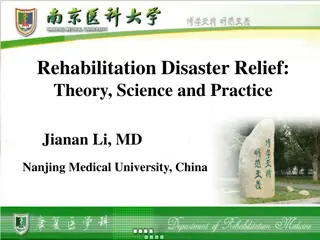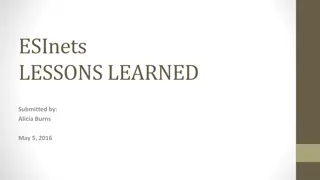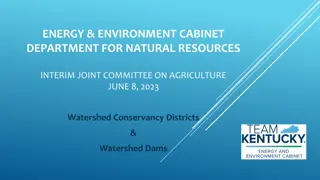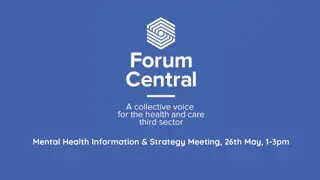Lessons Learned from Leeds Long COVID Community Rehabilitation Pathway Implementation
This document explores the implementation of the Leeds Long COVID Community Rehabilitation Pathway, highlighting the criteria for Post-COVID-19 syndrome, the role of primary care in referral pathways, and the success of the rehabilitation service in managing and supporting patients in the longer term. The service model involves a partnership between various healthcare professionals and community services to provide holistic care for Long COVID patients. Key changes in the service model over 12 months are discussed, emphasizing the ongoing evolution and learning in managing Long COVID patients.
Download Presentation

Please find below an Image/Link to download the presentation.
The content on the website is provided AS IS for your information and personal use only. It may not be sold, licensed, or shared on other websites without obtaining consent from the author.If you encounter any issues during the download, it is possible that the publisher has removed the file from their server.
You are allowed to download the files provided on this website for personal or commercial use, subject to the condition that they are used lawfully. All files are the property of their respective owners.
The content on the website is provided AS IS for your information and personal use only. It may not be sold, licensed, or shared on other websites without obtaining consent from the author.
E N D
Presentation Transcript
Lessons Learnt from Rehabilitation Care Pathway Implementation : The Leeds Long COVID Community Rehabilitation Rachel Tarrant & Jenny Davison Clinical leads/ Pathway co-ordinators & Specialist Physiotherapists
Pathway Criteria Post-COVID-19 syndrome Signs and symptoms that develop during or after an infection consistent with COVID-19, continue for more than 12 weeks and are not explained by an alternative diagnosis . GP referral pathway - https://www.leedsccg.nhs.uk/about/covid-19-primary-care/resources-for-professionals/post-covid- 19-pathway-and-guidance/ GP responsibility to rule out alternative diagnosis, pre referral investigations include but not limited to; bloods for fatigue, chest X-ray if breathless, STS test to check for desaturating patients, ECG for palpitations. Updated guidance about to be released. Hospital Pathway - under care of community teams and / or respiratory team if on oxygen. Can be referred into covid rehab pathway at 12 weeks if problems persist not many patients.
Dr Bryan Power GP Long Term Conditions clinical lead, Leeds CCG The pathway and guidance has enabled primary care to confidently assess, investigate and manage patients and refer appropriately to the Covid Rehab service. The key advantage is that it s not just as assessment service but it continues to manage and support patients in the longer term in a holistic, rehabilitationmanner. It s been a great success story for Leeds and not something I could have envisaged in the pre-Covid era
Service Model Partnership Working Third Sector INTEGRATED COVID REHAB SERVICE Clinical Pathway Co-ordinators PRIMARY CARE Specialist physiotherapists Leeds Active programme Singing for Breathing Peer support hubs Specialist Occupational Therapists Dietitians Rehab assistants Clinical psychologist Administration and Project Support COMMUNITY SERVICES Neighbourhood Teams SPECIALIST MDT Community matron LTC/ rehab management model Community Respiratory team Rehabilitation medicine Respiratory medicine Cardiology
Service Model changes 12 months THEN Home Visit model 8.8 AHPs Service need and demand unknown. Aetiology and rehab needs not fully known Low profile locally, nationally and internationally No patient information/resources Triage email/paper/phone NOW Hybrid Model clinic/ home / virtual 10 week virtual course 19.9 AHPs + admin and ops Award winning flagship service high profile Still evolving pathology and learning as evidence is published NIHR project LOCOMOTION leading service Long COVID rehab booklet Triage predominately app Partnership working & groups Health Coaching approach
Service Model changes 12 months WHY To meet increasing demand To be able to adapt new learning about the condition and implement relevant service changes accordingly Continue to learn about the condition Collecting data for a developing national picture Improve service access across the city Increase awareness of LC Providing the best patient care and service Ensure equity of access HOW Leadership & MDT Clinical supervision NEW team relationships built virtually through different forums for sharing Team Resilience/ health & wellbeing ODI/better conversations/ team blue sky thinking days / relaxation sessions Every individual involved with every decision empowering / nurturing and flourishing Regular service evaluation / data analysis Ongoing recruitment to address service need Inequalities working group
Rehabilitation Approach In clinic H/V Joint assessments OM collection, dysautonomia testing Passport Virtual 10 week symptoms digital course Review after course Individualised 1-2-1 approach Developing drop in weekly therapy group sessions (relaxation/ yoga / breathing control/ gentle exercise/ self-management support strategies)
Rehabilitation Approach Triage / initial assessment is key C19-YRS Identifying PEM Slow stream rehab approach (avoid relapses/boom-bust cycle) Dysautonomia approach Different to normal not graded / challenged Symptom titrated physical activity Activity and Fatigue diaries Pacing / energy conservation BORG and sp02 challenge safely Breathing techniques and re-training Vocational rehab Dietary/ nutritional support Supporting psychological wellbeing / signposting and referring on Bespoke resources created - virtual therapy sessions with support network and long haul rehab booklet.
Clinical Outcomes Measuring the severity and impact of Long Covid is established research practice within the service. Standardised outcome measures are assessed at baseline and discharge, including the C19YRS, EQ5D (Mental Health Wellbeing Measure), Modified Fatigue Impact Scale, MRC Breathlessness Scale, 30 second sit-to-stand test. Recent Evaluation of Clinical Outcomes: 86% report an improvement in health-related quality of life assessed through EQ5D (EuroQual 5- dimension instrument) 66% demonstrate improvement in the Medical Research Council breathlessness scale 82% report functional improvement through sit to stand test 85% have improved fatigue scores on the Modified Fatigue Impact Scale
Key Lessons learnt Care co-ordination / triage and C19 YRS Complexity = longer appointment times Slow stream rehab Consultant / medical support and skill mix of the team (physical and mental health) Partnership working to support flow / longer term management Large scale rehab offer utilising virtual approach and apps alongside individualised care Vocational rehab needs Research embedded
